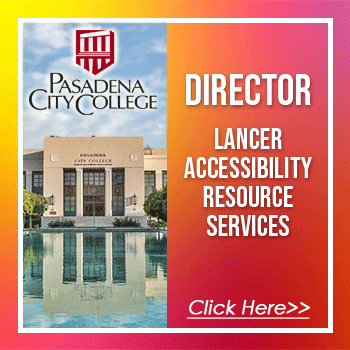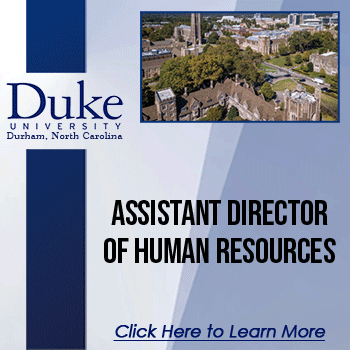
Post-Doctoral Research Associate
Job Description
Full job description
The School of Natural Resources at the University of Nebraska-Lincoln (UNL) Institute of Agriculture and Natural Resources (IANR) is seeking applications for two highly motivated and enthusiastic postdoctoral research associates. These 12-month (calendar year) special appointments will assist research for one of several ongoing research projects. The apportionment is either 100% research or 80% research and 20% teaching. The positions will be located in Lincoln, Nebraska.
The research is in the context of a large-enrollment general science class called Science and Decision-making for a Complex World. The course is an introductory course required for all majors in the College of Agricultural Sciences and Natural Resources at UNL. The goal of the course is to foster science literacy as students practice decisions about socioscientific issues, which involve facets of both science and society (e.g., economics, politics, and values ethics), such as water, energy resources, conservation of biodiversity, food production, and health. Projects include the NSF-funded project Supporting Students’ Science Literacy through Collaborative Critical Evaluation of Evidence, which aims to describe challenges students face in the critical evaluation of evidence during community deliberation and to assess teaching tools that support the proficiency of this practice. Another research project investigates the incorporation of experiential learning into the course and aims to describe how students connect classroom learning to real-world experiences and develop action competence and to research how science civic engagement skills compare across societal issues context.
The research is in the context of a large-enrollment general science class called Science and Decision-making for a Complex World. The course is an introductory course required for all majors in the College of Agricultural Sciences and Natural Resources at UNL. The goal of the course is to foster science literacy as students practice decisions about socioscientific issues, which involve facets of both science and society (e.g., economics, politics, and values ethics), such as water, energy resources, conservation of biodiversity, food production, and health. Projects include the NSF-funded project Supporting Students’ Science Literacy through Collaborative Critical Evaluation of Evidence, which aims to describe challenges students face in the critical evaluation of evidence during community deliberation and to assess teaching tools that support the proficiency of this practice. Another research project investigates the incorporation of experiential learning into the course and aims to describe how students connect classroom learning to real-world experiences and develop action competence and to research how science civic engagement skills compare across societal issues context.
The successful applicants will engage in research using science education and educational psychology theory to develop evidence-based teaching tools that are helpful to support community discourse and/or science civic engagement. The postdocs will support ongoing qualitative and quantitative data collection, analysis, and manuscript development. The 20% teaching/80% research-appointed postdoc will teach Science and Decision-making for a Complex World and support administrative duties associated with the class. If they choose, the 100% research-appointed postdoc will have the opportunity to teach a large-enrollment college course and participate in curriculum development.
Recognizing that diversity enhances creativity, innovation, impact, and a sense of belonging, the Institute of Agriculture and Natural Resources (IANR) and the School of Natural Resources are committed to creating learning, research, Extension programming, and work environments that are inclusive of all forms of diversity. Consistent with the University’s N2025 Strategic Plan, we see every person and every interaction as important to our collective well-being and our ability to deliver on our mission.
UNL has a large and active discipline-based education research community with many opportunities for professional development, mentorship, and collaboration. Lincoln, Nebraska (pop. 298,000) is a great place to live, work, and play. It boasts a comfortable, family-friendly atmosphere with a burgeoning social scene. Lincoln consistently ranks high for quality of life, best places to live, and healthiest small cities in the U.S. Learn more at https://aboutlincoln.unl.edu/, https://go.unl.edu/connections, and https://www.lcoc.com/meet-lincoln.
As an EO/AA employer, the University of Nebraska considers qualified applicants for employment without regard to race, color, ethnicity, national origin, sex, pregnancy, sexual orientation, gender identity, religion, disability, age, genetic information, veteran status, marital status, and/or political affiliation. See https://www.unl.edu/equity/notice-nondiscrimination.
- Ph.D. in science education or related field (ecology, earth science, biological sciences, environmental science, or agricultural science) with significant experience in science education research.
- Record of first-author peer-reviewed research publications investigating science education/student learning.
- Qualitative and quantitative data collection and analysis experience.
- Demonstrated experience or understanding of evidence-based teaching strategies.
- Demonstrated strong verbal and written communication skills.
- Experience working with diverse groups.
Posted Salary
How to Apply
Click “Apply for this Job” and complete the faculty information form. Attach the following documents:
- A letter of interest that describes your qualifications for the job, anticipated contributions, and your experience working in diverse teams or groups and your anticipated contributions to creating inclusive environments in which every person and every interaction matters (2 page maximum). See https://ianr.unl.edu/tips-writing-about-commitment-to-deib for guidance in writing this statement.
- Your curriculum vitae.
- Contact information for three professional references
*Please mention you saw this ad on PhdJobs.*
Be Seen By Recruiters at the Best Institutions
Create a FREE Profile to be Seen!






